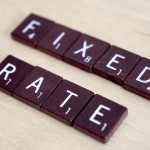Customers of three major banks woke up to a rude shock due to the home loan fixed interest rate hike unseen in recent years for residential property mortgages.

Some homeowners who opted for a bank loan to finance their mortgage have been left in shock after the three major local banks announced on October 4 that the fixed interest rate for housing loans will be raised to a maximum of 3.85 per cent.
UOB has claimed that more customers were now asking for repricing and refinancing than those who were a year ago, in line with market trends in a rising interest rate environment. DBS and OCBC pointed out that more customers have recently sought stable mortgage rates.
One 34-year-old, who just moved into his new home in April, told Channel 8 News that he opted for a bank’s two-year home loan variable rate package last September, when the rate was 1.1 per cent and the fixed rate was 1.3 per cent.
Surprised by the home loan fixed interest rate hike, and perhaps regretting the fact that he didn’t opt for Housing Development Board’s (HDB) housing loan, he said:
“Looking back now, I will regret it a little. In fact, we just received information from the bank yesterday, that is, from 1.1% when we first started, it has now risen to 3.3%, which is not what we expected.”
The new homeowner has decided to rent out an extra room to cope with the increased loan repayment cost, for now. He added that he will consider further actions at a later date, given economic conditions and inflation.
Financial consultants generally advise that it is best to limit your monthly debt repayments to 35 per cent or less of your income, so you should be able to handle it no matter how high the interest rate is. Also, If you’re cash-flow tight right now, or your income isn’t stable, then fixed rates are the types of home loan you should be looking at.
HDB homeowners who did not opt for HDB mortgages in the first place, would not be able to do so later. Experts have advised that homeowners who want to feel at ease should seriously consider whether bank interest rates will really serve them well since it may be lower in the short term but heftier as time goes on.
“As long as property sentiments are positive, I do not see interest rates as being a very big deterrence for people buying property,” said Mr Paul Ho chief officer at iCompareLoan.
The home loan fixed interest rate hike have not affected the public housing resale market substantially, as the loan quantum of most HDB flats is not high, and most homeowners are not over-leveraged.
“As for the private residential property market, most existing homeowners should be able to service their home loans now. However, the home loan fixed interest rate hike are more likely to be keenly felt once they edge past the 3,5 or 4 per cent mark,” said Mr Ho.
The total debt servicing ratio (TDSR) threshold for property loans uses a stringent 3.5 per cent interest rate computation which should be sufficient buffer for rates to move before monthly mortgage obligations exceed borrowers’ gross monthly income.
“For buyers of HDB flats and are taking up an HDB loan, the good thing about it is that they have the flexibility of refinancing to a bank loan if they ever change your mind because it does not have a lock-in period. But if they are taking a bank loan, there is no way they can refinance to an HDB loan,” said Mr Ho.
“They should also read up on good guides on refinancing in Singapore,” he added.
Buyers will only likely start going easy on investing if the positive property market once the interest rates go up to 4 or 5 per cent with bank home loan hikes, and affect their disposable income.
The increased public housing supply with launch of more BTO flats in the second half of this year is expected to draw demand away from the resale market. This is also expected to regulate the pace of price growth and tame market exuberance.
As for the prices of new homes, excluding executive condominiums, prices may rise by 6 to 9 per cent this year as compared with 2021, while around 9,000 to 10,000 units may be transacted.
On the whole, the resale market prices for 2022 may increase by between 6 and 8 per cent from the previous year.
Positive side of interest rate environment
Today, consumers have a wide range of home loan packages to choose from compared to several years ago, and this is a huge advantage to home buyers and investors.
Home loans could also be tied up with other programmes which rewards customers with a higher interest rate on their deposits if they transact more with the bank, such as getting a home loan and crediting their salary with the same bank.
Typically, with mortgage loans you are offered attractive rates for the first three years when you refinance – following which the interest rates are adjusted upwards. This usually coincides with the end of the lock in period, offering borrowers a good opportunity to relook their loans.
Those who already have a home loan with a lender you are comfortable with, should consider repricing, especially with the recent home loan fixed interest rate hike.
Repricing refers to switching to a new home loan package within the same bank while refinancing refers to closing your current home loan account and setting up a new home loan account with another bank.
A repricing typically occurs when new incremental loan facilities and/or refinancing facilities are introduced into the same documentation as an existing loan. The proceeds from the new incremental loan facility will have a lower margin and will be used to repay the existing loan.
While repricing lets you replace your existing loan with a new loan with the same lender that potentially has a new interest rate or revised repayment timeline, refinancing might be a good option if interest rates have dropped or are lower than your current rate, or if you need to extend your repayment term.
When considering refinancing versus repricing, remember that securing a lower interest rate will reduce your cost of borrowing so you’ll pay less on your home loan, overall.






